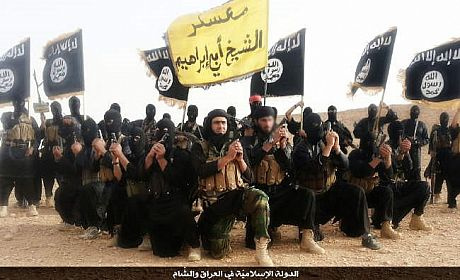What Does Daesh Seek?

Security developments in the region have entered a new phase. The number of radical armed groups, under different names, is growing in this chaotic region. The volume of suicide attacks carried out by these groups which are usually closely related to al-Qaeda has considerably increased. There is no doubt that the reason behind such a situation is the unprecedented insecurity which has ruled this region during the past decade. Certainly, the creation of such an atmosphere is in harmony with the approach of some regional players and safeguards their interests more than the era of security. The following is a look at the incidents of recent days:
Perhaps this is the first time that the security forces of the Lebanese army have succeeded in arresting one of the most important terrorist leaders of the region. This was not a simple achievement, even though it was stated that this arrest was made with the cooperation and help of the US security forces. At the same time, it must be considered that the developments which occur these days in the region are related to each other. The terrorist Daesh group (the Islamic State of Iraq and the Levant), whose name can be found in most of the terrorist actions in Syria and Iraq, has grown more than it should and must be stopped. Iraqi military forces in al-Anbar province, which is the center of growth and presence of this terrorist group, have entered into action and incidentally, with the cooperation of the security forces of some neighboring countries of Iraq, like Jordan, have been suppressing this movement. This means that the biggest terrorist movement of the region which is active in Syria is forming. Of course, the operational area of this group goes beyond Syria and has, for years, been active in Iraq and recently in Lebanon. Incidentally, Lebanon is a suitable country for the operation of this group and its allies. The presence of several ethnic and religious groups in this country has prepared a suitable ground for this group considering the political differences which rule in Lebanon. This point must also be noted that some of the Arab countries of the region which consider their influence and existence in Lebanon as dependent on the disruption of peace and security want these terrorist groups such as the Abdullah Azzam Brigades and its commander, Majed al-Majed, to play an active role in these areas. Part of the government in Saudi Arabia is not only interested in pursuing terrorist actions in Lebanon, but is also accused of supporting and directing these groups.
Who is Majed al-Majed? He is a citizen of Saudi Arabia and one of the most active leaders of the terrorist Takfiri group named the Abdullah Azzam Brigades. The serious presence of this group in Lebanon dates back to five years ago and during the war of the Palestinian Takfiris of the northern camps of Lebanon with the army of this country. Of course, the most significant radical Salafi movement was Fatah al-Islam. With the outset of civil war in Syria and the entrance of radical Islamists into this country, Majed al-Majed left the Palestinian Ain el-Hilweh Camp and entered Syria and cooperated with the al-Nusra front in the north of this country while his forces in Lebanon pursued the recruitment of young people from the Sunni-inhabited areas and their dispatch to Syria. Majed, who had met with Ayman al-Zawaheri in Afghanistan, attempted to become the leader of al-Nusra, but due to his differences with the leaders of this front became close to the Daesh movement and pledged allegiance with its commander, Abu Bakr al-Baghdadi. Majed al-Majed and his group have planned a series of activities in Lebanon. In the city of Sidon, he created chaos for months against the resistance forces through a Sunni clergy named Sheikh Ahmed al-Assir and carried out suicide attacks in the city of Tripoli and the highly-populated neighborhood of Zahiyeh in Beirut killing many people in Lebanon. The last terrorist action of his group was two suicide explosions in front of Iran’s embassy in Beirut. Measures taken by him and his groups have created hatred in the public opinion of Lebanon and his arrest has certainly satisfied the people of this country.
Many political analysts in the region believe that the terrorist actions of Majed al-Majed could not have been possible without a foreign cover and his entrance into Iraq and Syria and having security information to carry out these explosions are certainly related to his relations with some Arab states of the region including part of the government of Saudi Arabia. Although Majed al-Majed and the Abdullah Azzam Brigades, Daesh and the al-Nusra front and other radical and violent movements support one religion or ethnic group in words against other religions and ethnic groups, they are undoubtedly considered as a tool for the enforcement of the policies of a certain group in the region whose intention is to enter the regional equations through the creation of insecurity and destruction and influence the areas wherein the existence of peace does not provide the ground for them to play a role.

